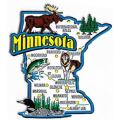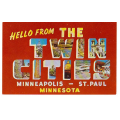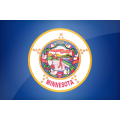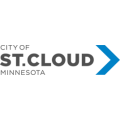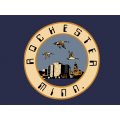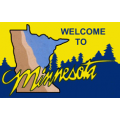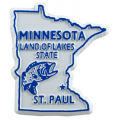Licensed practical nurses (LPNs) provide basic bedside care including measuring and recording patients' vital signs, such as height, weight, and pulse. They also ensure the comfort of patients by helping patients with bathing, dressing, and moving around. LPNs may also help to feed ailing patients.
Minnesota
We've organized a comprehensive list of Minnesota nursing schools. Below you'll find information on specific nursing programs such as LPN certificates and ADN, BSN, and MSN degrees. You'll also find a profile of nursing education and careers in each major Minnesota city.
City-specific information
Home to a variety of programs, Minnesota offers prospective nursing students a wide array of options. In order to find the right educational path, it is important to understand the different roles available to candidates.
With a wide selection of educational options in the Minneapolis-Saint Paul metropolitan area, it is essential for prospective nurses to understand the differences among programs and the merits of each nursing career path.
Nursing is America’s largest healthcare profession. In the state of Minnesota, you will find a thriving healthcare community of more than 115,000 licensed nurses. Even in smaller cities like Saint Cloud, nurses form a large and growing share of the workforce. The Saint Cloud metropolitan area is home to 2,310 registered nurses (RNs), 1,160 licensed practical nurses (LPNs), and 1,320 certified nursing assistants (CNAs).
Rochester, Minnesota, is home to a population of more than 11,000 nursing professionals. These individuals work in a broad range of nursing roles. With a population of more than 8,000, registered nurses (RNs) make up the largest group of local healthcare professionals. Certified nursing assistants (CNAs) are the second-largest, numbering over 1,500 in the metropolitan area. Nurse practitioners (NPs) are the third-largest group, with 880 licensed professionals.
If you would like to start a nursing career in the Fargo-Moorhead metropolitan area, you will need a degree or certificate from an accredited nursing school. Fortunately, the metro area of more than 230,000 residents is home to several accredited schools with highly regarded nursing programs. North Dakota State University in Fargo offers bachelor of science in nursing (BSN) and doctor of nursing practice (DNP) degree programs. The university also has a BSN track for existing registered nurses (RNs), called an RN-to-BSN completion program.
The so-called "Twin Ports" of Duluth, Minnesota, and Superior, Wisconsin, are located along the western shores of Lake Superior. Together, they form a large metropolitan area of approximately 280,000 inhabitants. Aspiring nurses in the Twin Ports area can start their careers with a certificate, diploma, or degree from an accredited local nursing school.
In Minnesota, there are a number of different opportunities in the nursing field, and aspiring nurses can choose from various career paths. It is important to consider which career path is right for you before deciding upon an education program. Below, you can find out a little more about some of the major roles in nursing.
The master of science in nursing (MSN) is a graduate degree program that trains students for specialty careers in advanced practice nursing. Unlike more general associate’s and bachelor's degree programs, MSN programs enable students to narrow the focus of their studies and specialize. Students can choose to focus on nursing administration, nursing education, adult health, public health, community nursing, or a number of other subfields.
If you’re thinking about becoming a registered nurse (RN), then taking the time to pursue a bachelor of science in nursing (BSN) is a worthwhile investment in your future. Employers are making it increasingly important for RNs to hold bachelor’s degrees in order to remain competitive in the field. Besides, RNs have such important responsibilities in healthcare, it is essential that you prepare for the challenges by giving yourself the best education available.
Prospective nurses must consider the costs of attending a nursing school when choosing the right program, especially since these costs differ greatly from school to school. The cost of nursing education varies because of the sheer number of factors that contribute to the bottom line. Schools in different locations will require different expenditures on necessities like books and supplies. Costs also vary based upon length of program, as well as whether the institution receives public funding.

